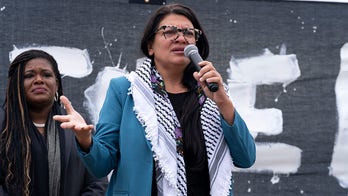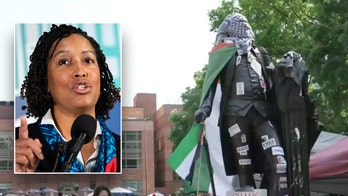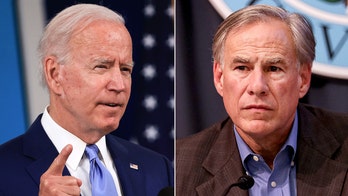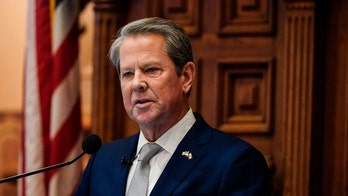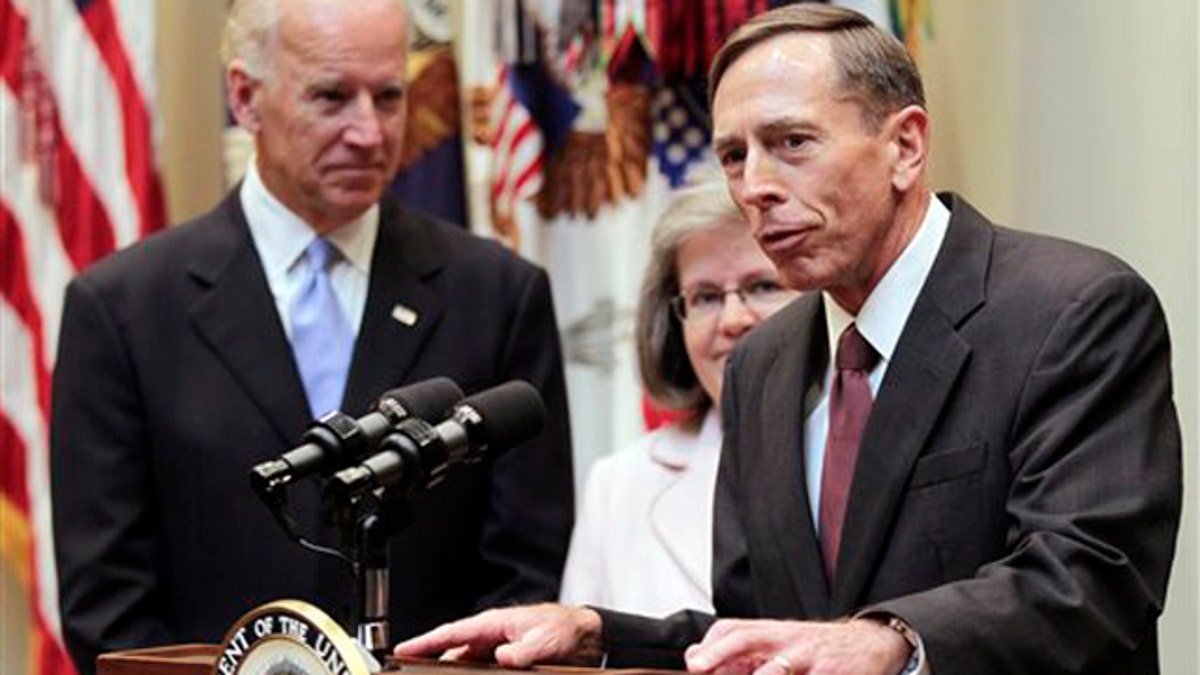
CIA Director David Petraeus, right, speaks following his swearing-in ceremony with his wife Holly Knowlton Petraeus, center, and Vice President Biden, left, in the White House Sept. 6. (AP)
CIA Director David Petraeus, in his first public appearance since taking the helm of the agency, said Tuesday that Al Qaeda's leadership has been driven "underground" but that its affiliates and sympathizers pose an increasingly dangerous threat to the United States.
Petraeus said successful takedowns of key Al Qaeda leaders, including Usama bin Laden earlier this year, have made the terror network "much weaker and less capable" than when it attacked America 10 years ago on Sept. 11.
He said bin Laden's replacement, Ayman al-Zawahiri, is seen by the Al Qaeda base as "less compelling," and the organization is "struggling to find qualified replacements" for other operatives and leaders. The attention of leaders in Pakistan's tribal areas has shifted from terror plotting to "security and survival," Petraeus said, noting that the decimation of Al Qaeda leadership presents a "window of vulnerability" for the U.S. to exploit.
But, in a hearing before the House intelligence committee, Petraeus said Al Qaeda's offshoots around the world are filling the void. He pointed to Al Qaeda in the Arabian Peninsula, based in Yemen, as "the most dangerous regional node in the global jihad."
The group was behind the failed plot to bomb a Detroit-bound jet in December 2009 and the plot to send bombs hidden in printers on cargo jets last year. Petraeus also expressed concern about affiliates and sympathizers in Somalia, Nigeria, Algeria and Iraq.
Petraeus commanded U.S. military forces in Iraq, and later in Afghanistan, before taking the CIA directorship. He said Al Qaeda in Iraq has suffered "significant losses" since the 2007 troop surge but is still capable of carrying out sensational attacks.
While Al Qaeda's mission of terror is "shifting" to affiliates, Petraeus said, the core remains "committed" to attacking U.S. citizens. He said the U.S. will need to keep pressure on the network for the "long haul."
Director of National Intelligence James Clapper echoed Petraeus' comments. He said the "relentless pressure" on Al Qaeda has weakened the organization, but "the stark fact is that we remain threatened."
"It would be an error to conclude that we have reason to gloat, reason to soften our focus," he said. "The terrorists still wish to do us harm, destroy our institutions, and to kill Americans without conscience."

